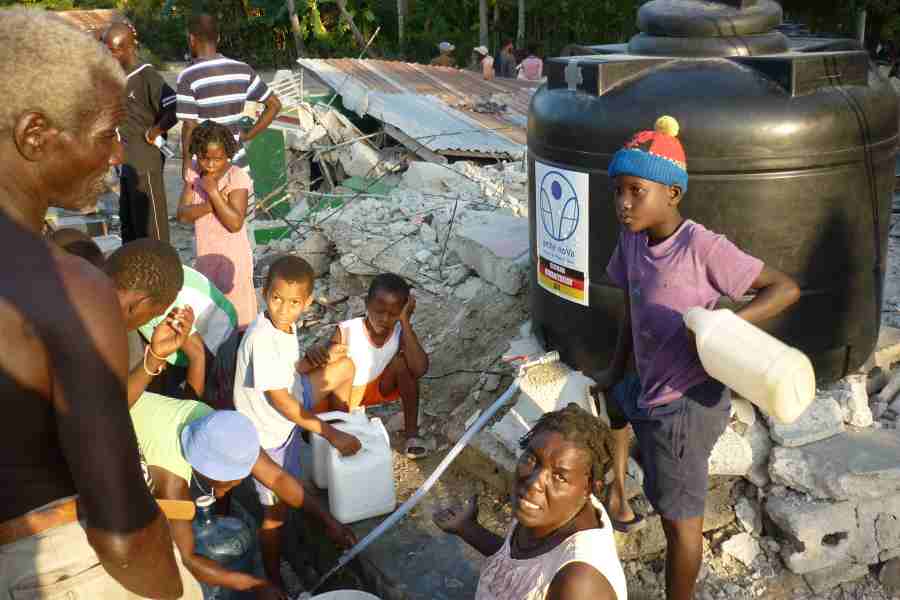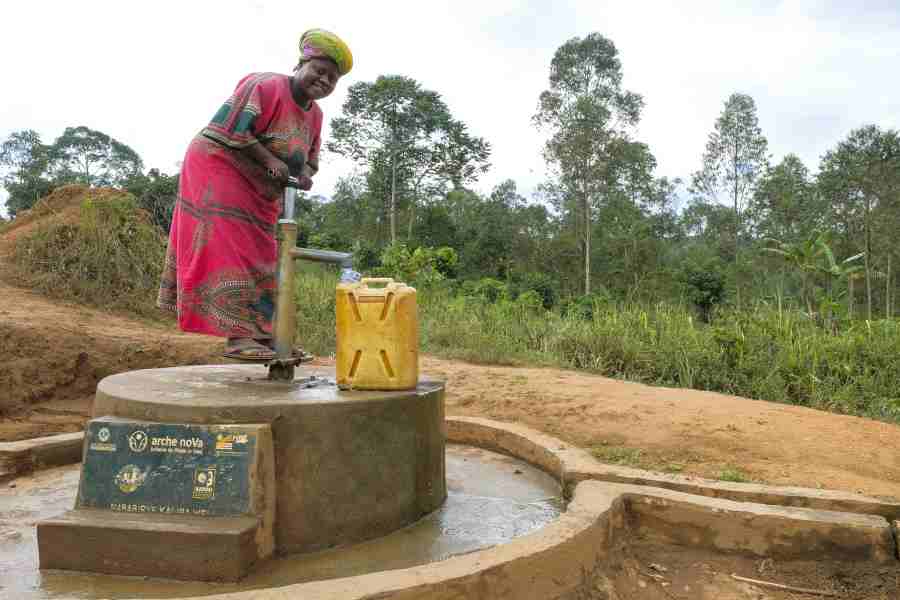Many other natural catastrophes have occurred in the past ten years. The severe floods in Pakistan in 2010, the severe drought in Ethiopia in 2011, typhoon Haiyan in the Philippines in 2013, the earthquake in Nepal in 2015 - to mention just a few. arche noVa was able to help many affected people in these countries. In addition, arche noVa was increasingly involved in other projects, including longer-term development cooperation activities.
Project activities multiplied
arche noVa has grown considerably over the past ten years. Whereas total expenditure in 2009 was still around 997,000 euros, the amount in our most recently published annual report of 2018 rose to 14.9 million euros. We are working with ever larger sums in ever more dangerous contexts.
"Worldwide, humanitarian aid is needed many times more than it was ten years ago. Man-made crises and the consequences of climate change affect hundreds of millions of people."
At the turn of the year, we face a world where humanitarian needs are greater than ever before. This is less due to singular natural disasters than to two global trends: there are more and more crises, conflicts and wars that last longer and longer, and there are more and more countries in which the consequences of climate change affect people existentially. Both developments are made by humans. As a result, people on all continents are dependent on humanitarian aid. The United Nations speak of 168 million people worldwide. In addition, there are regional injustices that structurally disadvantage people.
arche noVa is operating at hot spots
In 2012, none of us suspected that the emergency aid we had just launched in Syria would still be urgently needed in 2020. Every day, our Syrian colleagues distribute bread, food and water. There is no end in sight to the crisis. This also applies to the precarious situation of the many refugees in the neighbouring countries of Syria such as Lebanon or Iraq, where arche noVa continues to support people in emergency shelters with WASH activities.
Other project countries are severely affected by climate change. In Kenya Doris Mubende told us that she was on the verge of fleeing to the overcrowded metropolis of Nairobi before our water project gave her a perspective as a small farmer in her home country. "We are increasingly targeting our projects at those who urgently need support. And we are increasingly succeeding in establishing solutions that have a longer-term perspective. Our goal is even more effectiveness and impact," says Mathias Anderson.
Empowering helpers on site
Those who can and want to provide first aid are those who are already on the spot. arche noVa has started in the past ten years to promote self-help forces even more on site. "It is about knowledge transfer and localisation of help," explains Mathias Anderson. That's why we like to cooperate with local partner organizations. Since 2015, arche noVa has also been organizing regional workshops for experts from local organizations in the field of water, sanitation and hygiene in Africa and Asia.
In 2019 arche noVa set the course for all future decisions. Vision and mission were formulated. In them, we defined our focus on WASH and education. In the future, both fields are to grow even closer together. "We want to link our educational work here in Germany more and more with international projects," says Mathias Anderson. "I'm curious to see what synergies will develop from this."














